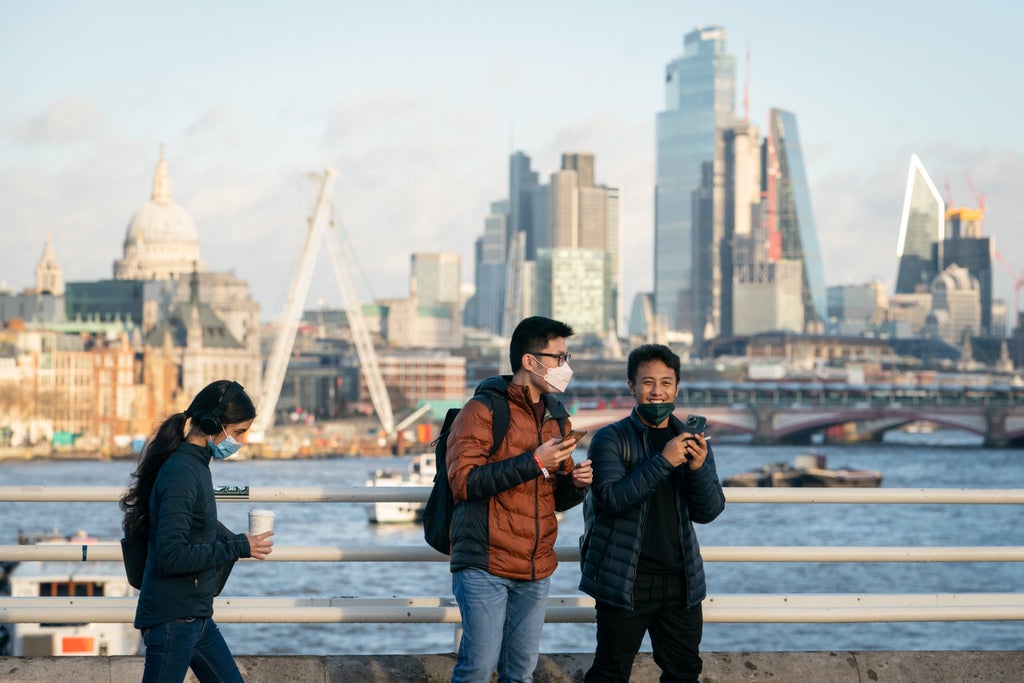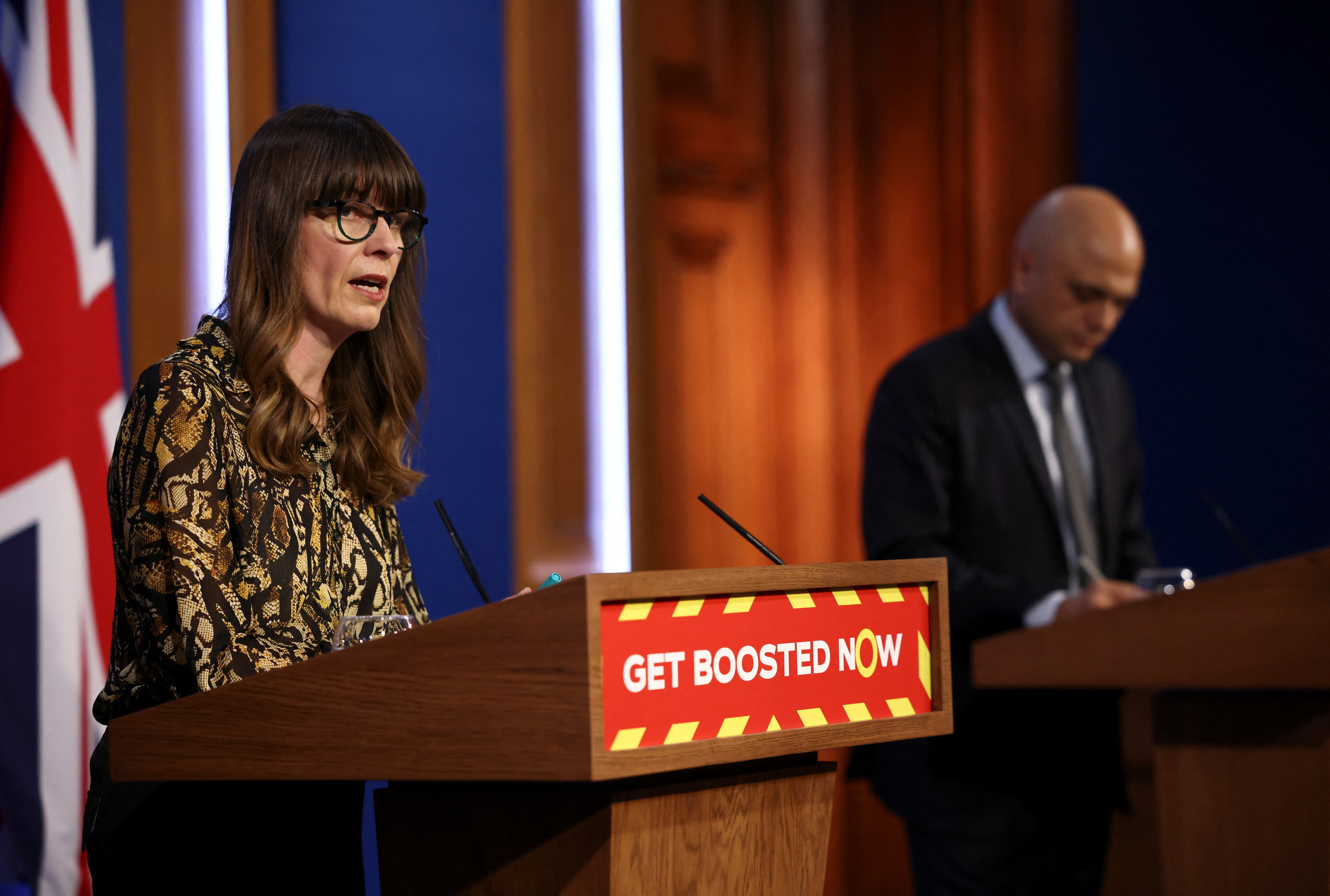
People’s behaviour will make a difference to declining or rising coronavirus cases, the chief medical adviser to the UK Health Security Agency (UKHSA) said.
Dr Susan Hopkins told a press conference in Downing Street that people mixing and socialising will “need to do that carefully and within the guidelines”.
The Prime Minister announced on Wednesday that mandatory face masks will no longer be required across England from next week, while advice for people to work from home will be dropped immediately.
Dr Hopkins told the press conference the UKHSA is completely comfortable with the changes announced, and said: “I think what we’ve seen is that case numbers have declined.

“It’s people’s behaviour that is going to make the difference over the next four weeks, on whether those case numbers continue to decline, stay the same, or rise.
“Clearly when you’re working from home you have less social contact, but we’re already seeing some people start to go back into the office and mix and socialise more.
“They need to do that carefully and within the guidelines, taking care particularly when they’re on public transport, in indoor spaces and crowded places to wear face coverings; to test regularly if they’re going back out and meeting people, particularly those who are more vulnerable; and finally to ensure that they’ve taken up that vaccination offer.”
Dr Hopkins added that “the biggest response that we all have as individuals is to take our personal behaviour seriously and that really is driving towards vaccination uptake, as well as remembering to wear our face coverings when you’re in closed spaces with people that you don’t know”.
Mayor of London Sadiq Khan urged the Government to “rethink its plan” after it was announced face coverings would no longer be mandatory.
He posted on Twitter that “Covid-19 still poses a significant threat” and “wearing a face covering is one of the most effective things we can do to stop the spread”.
Mr Khan added that face coverings will still remain compulsory on Transport for London services, and said: “The Government must rethink its plans and keep legislation in place to make face coverings compulsory.
“Face coverings will remain a condition of carriage on TfL services. I’m asking everyone to do the right thing and continue to wear a face covering when travelling on TfL to keep Londoners protected and prevent further restrictions from being necessary later down the line.”
Charities also described the move to end the mandatory wearing of face masks a “risk” following Wednesday’s announcement.
Richard Kramer, chief executive of Sense, a charity for the disabled, said: “Whilst for many, and thanks to the success of the vaccination programme, Covid-19 isn’t a significant risk to their health, we must remember that many disabled people still remain much more at risk of severe illness and complications from the virus.
“The restrictions that are being lifted, such as compulsory mask-wearing on public transport, are in reality safety measures, and their removal comes with risk, which will increase anxiety for many.
“The Government’s message is that the world is opening up and that we’re going back to ‘normal’, but for many disabled people this isn’t the case. Many people, who have been considered clinically extremely vulnerable have chosen to continue shielding after it was formally ‘paused’ as they have simply not felt safe to leave their homes.”
Henny Braund MBE, chief executive of the Anthony Nolan charity, said: “Infection rates remain extremely high and ending Plan B restrictions in England will pose a serious and ongoing risk to blood cancer patients, who remain vulnerable to Covid-19. They may be forced to shield for their own protection – two years from the start of the pandemic – while the rest of society moves on.
“We urge Government to keep face masks mandatory as they are proven to reduce virus transmission. We are also calling for a dedicated lead for people who are immunocompromised, so that there is clear guidance and support to stop blood cancer patients from being left behind.”







